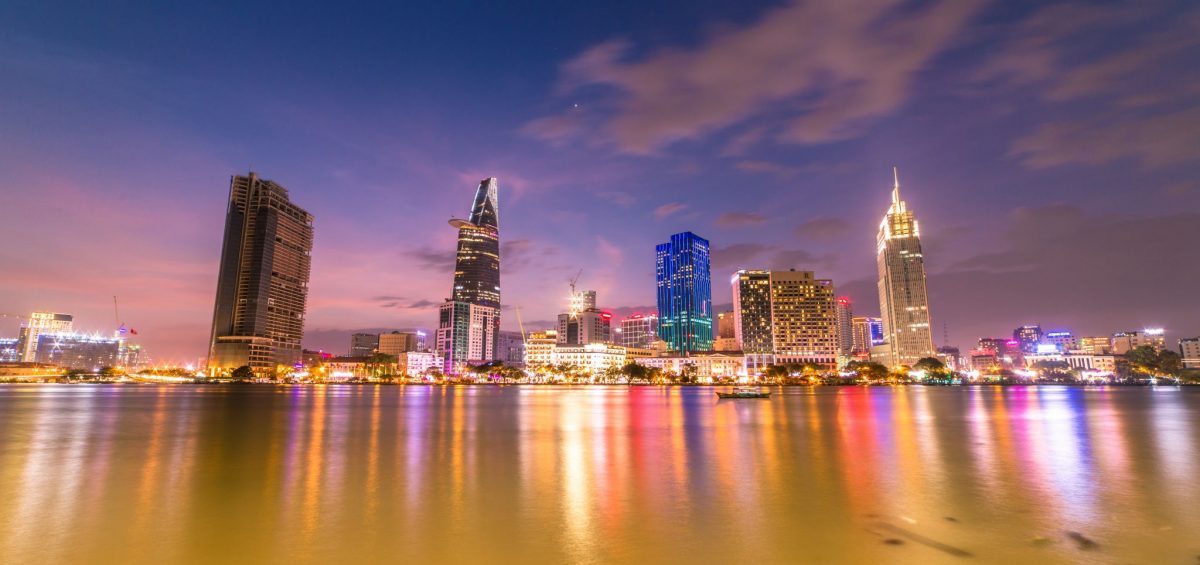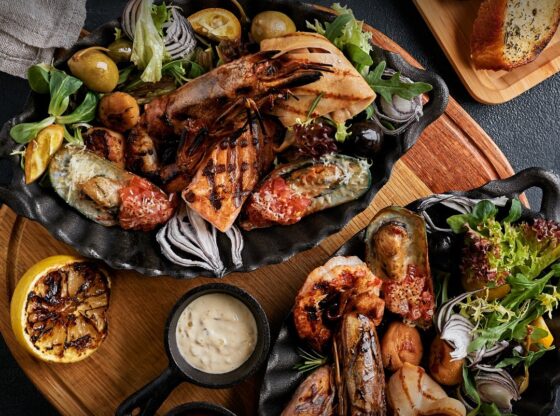![]()
America-China trade war represents opportunities for Thailand, But care needs to be taken that Vietnam does not reap all the benefits
Discord between The US and China means that Thailand’s property sector stands well-placed to benefit from the lack of harmony between the two Super Powers – in the short term at least.
Demand for co-working spaces in the capital is set to rise over the next couple of years, reports the Bangkok Post, while another of the region’s most influential newspapers – the South China Morning Post – refers to potential Thai gains on the manufacturing front.
It all sounds rather promising for the Thai economy. But, a few words of warning:
1 Vietnam is also vying to take the trade wars opportunities out from under the noses of the Thais – and they have a few things going for them;
2 The strong Thai baht may make the price of exported goods more expensive than others might want to pay;
3 What happens if everyone gears up on the back of the discord and then the US and China settle their differences? Possible, but maybe not probable.
For the reasons above (and I’m sure more will present themselves) I would put a big red sign on the situation saying ‘handle with care’.

The Thais need to tread an even path between the two trading giants. Leaning too strongly – either way –¬ could prove a very poor move both in the short and the long term.
According to the Colliers International Thailand a 50 per cent increase in Bangkok co-working spaces can be expected over the next couple of years. The property consultants expect many overseas firms to want to move to Thailand as the US-China trade war escalates.
Bangkok’s office market – especially top grade spaces – are in relatively short supply in central business locations. Occupancy rates have been as high as 90 per cent in recent years. So, Colliers expects international operators to favour co-working spaces.
The Bangkok Post quotes Colliers’ associate director of research Phattarachai Taweewong as saying: “Despite an economic downturn, big co-working space players continue expanding their spaces in Bangkok as Thailand is a new production base for businesses relocating amid the trade war.”
Taweewong suggests that co-working spaces will provide a solution while new office supply is being built.
Colliers expects there will be 50,000 square metres of co-working space added in Bangkok by 2021.
More than three-quarters of this (78 per cent) will be from two major players – The American outfit, WeWork, and Singaporean operator, JustCo.
As one would expect, both companies will be concentrating on sites close to mass transit stations.
But all this talk of offices has got me thinking. To the best of my knowledge, Pattaya does not have an obvious business district. Outside of city hall, I am not aware of many (any?) large office blocks.
A few years back this magazine reported on a plan to build one, but it failed to gain traction.

Does Pattaya need a business centre?
Probably not – at the moment. If there is going to be one I would expect it to build up around the main railway station when the high-speed railway line arrives here. I hope it is a “when” and not an “if”. The rail line may be another reason not to tick off the Chinese given Thailand will need their investment to complete it.
But, and whisper this softly, I’m wondering if the days of large office blocks are in decline generally. So many staff members can work from home thanks to laptop computers, will any company really need big offices again. Perhaps this is another reason why co-working spaces are on the increase.
And just one more thought on offices. Does Thailand need to rethink its approach when granting foreign work permits?
A few years back (things may have changed) a foreigner in business had to have a physical office.
Will the influence of the internet change this?
If it hasn’t already, I think it should.
Away from the office spaces, the prospects also look good for manufacturing facilities. But the cost of Thailand’s labour force compared with Vietnam’s may be a deciding factor.
Who would have thought 20 years ago that I would be writing that?
The Thai Government hopes that tax breaks offered in its recently approved Thailand Plus package will lure China-based companies that have been hit by higher tariffs.
Vietnam, with its cheaper labour force, may have something to say about that. Vietnam has certainly pushed on in the post-war years. It is now a real rival for the tourist dollar/pound.
Also, as we reported in a recent issue, the country seems to have overtaken Thailand in the top hotel stakes though we are confident that Thai hotels will be working hard to correct this.
In addition, Vietnam has free-trade agreements with global partners such as the European Union.
Thailand has made changes to its laws in a bid to attract interest from China, Japan, Taiwan and South Korea. To goal is to attract 100 companies to invest in Thailand.
But Vietnam is not the only competition in the region bidding to attract companies. Indonesia is planning to cut its corporate tax rate by five per cent starting in 2021. It has also promised to overhaul its value added tax (VAT) income tax and general taxation.
Set against all this is the fact that Thailand’s location is regarded as an advantage given it is at the centre of the CLMV (Cambodia, Laos, Myanmar, Vietnam) countries.
Which country will benefit most from the China/USA fall-out?
That remains to be seen. At least we can say that the Thailand Plus package is an indication that the country is aware that there will be winners and losers on the periphery of this larger trade “conflict”. And Thailand wants to appear in the winners’ column.
By Dave Buckley












